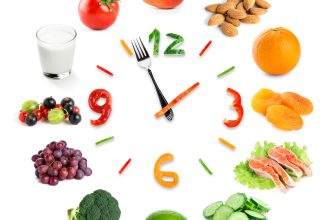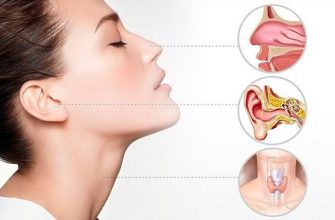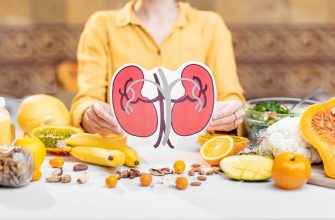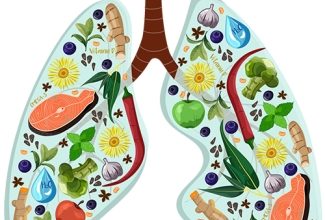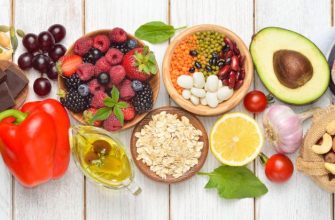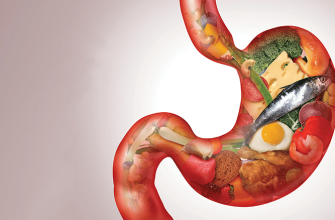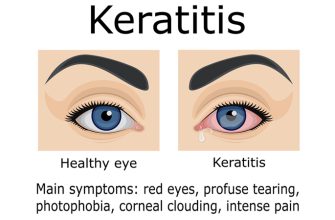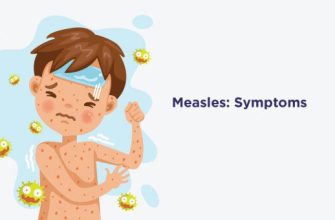Proper nutrition is essential for managing arthritis, osteoporosis, sarcopenia (muscle loss), gout, and inflammatory joint diseases. A targeted diet can reduce inflammation, support bone/muscle health, and improve mobility.
- Key Dietary Goals for Musculoskeletal Health
- Recommended Foods for Musculoskeletal Health
- 1. Anti-Inflammatory Foods
- 2. Bone-Strengthening Nutrients
- 3. Muscle-Preserving Proteins
- 4. Gout-Friendly Foods
- Foods to Limit or Avoid
- Nutrition for Specific Conditions
- 1. Osteoarthritis & Rheumatoid Arthritis
- 2. Osteoporosis
- 3. Gout
- 4. Sarcopenia (Age-Related Muscle Loss)
- Key Supplements for Musculoskeletal Health
- Lifestyle Synergy
- When to See a Dietitian?
- Prognosis
Key Dietary Goals for Musculoskeletal Health
✔ Reduce inflammation (for arthritis, autoimmune conditions)
✔ Maintain bone density (prevent/treat osteoporosis)
✔ Preserve muscle mass (combat sarcopenia)
✔ Manage uric acid levels (gout prevention)
✔ Support connective tissue repair (cartilage, tendons)
Recommended Foods for Musculoskeletal Health
1. Anti-Inflammatory Foods
- Fatty fish: Salmon, sardines (rich in omega-3s EPA/DHA)
- Colorful fruits/veggies: Berries, cherries, spinach (antioxidants)
- Healthy fats: Olive oil, avocados, nuts
- Spices: Turmeric, ginger (natural COX-2 inhibitors)
2. Bone-Strengthening Nutrients
- Calcium-rich foods: Collard greens, fortified plant milks, yogurt
- Vitamin D sources: Egg yolks, mushrooms, sunlight exposure
- Magnesium foods: Pumpkin seeds, dark chocolate, almonds
3. Muscle-Preserving Proteins
- Lean meats: Chicken, turkey
- Plant proteins: Lentils, tofu, quinoa
- Collagen boosters: Bone broth, citrus fruits (vitamin C for synthesis)
4. Gout-Friendly Foods
- Low-purine proteins: Eggs, low-fat dairy
- Cherries (may lower uric acid)
- Coffee (associated with reduced gout risk)
Foods to Limit or Avoid
❌ Processed meats & fried foods (pro-inflammatory)
❌ Excess alcohol (worsens osteoporosis/gout)
❌ High-sugar foods (promotes inflammation)
❌ High-purine foods (for gout): Organ meats, shellfish, beer
❌ Excess salt (accelerates calcium loss)
Nutrition for Specific Conditions
1. Osteoarthritis & Rheumatoid Arthritis
- Prioritize omega-3s (3+ servings fatty fish weekly)
- Nightshade vegetables? (Tomatoes, eggplants – monitor tolerance)
- Consider gluten-free trial (if RA flares correlate with gluten)
2. Osteoporosis
- Calcium + Vitamin D combo (required for absorption)
- Limit caffeine (>3 cups/day may reduce calcium absorption)
- Weight-bearing exercise + protein (stimulates bone formation)
3. Gout
- Hydration focus (2-3L water daily to flush uric acid)
- Limit fructose (soda, sweetened juices raise uric acid)
4. Sarcopenia (Age-Related Muscle Loss)
- Protein distribution (25-30g per meal)
- Leucine-rich foods (whey, eggs, chickpeas – stimulates muscle synthesis)
Key Supplements for Musculoskeletal Health
- Glucosamine + Chondroitin (may support joint cartilage)
- Vitamin D3 + K2 (optimizes calcium deposition in bones)
- Collagen peptides (may improve joint pain)
- Creatine (preserves muscle mass in aging)
Note: Consult a rheumatologist before starting supplements if on immunosuppressants.
Lifestyle Synergy
- Resistance training (2-3x weekly – critical for bones/muscles)
- Weight management (obesity strains joints)
- Smoking cessation (impairs bone healing)
When to See a Dietitian?
- Recent fragility fracture
- Unexplained muscle wasting
- Frequent gout attacks
Prognosis
- OA pain can decrease by 30% with anti-inflammatory diets
- BMD (bone density) improvements possible with nutrition + exercise
- Gout attacks reduced by 75% with proper diet + meds

